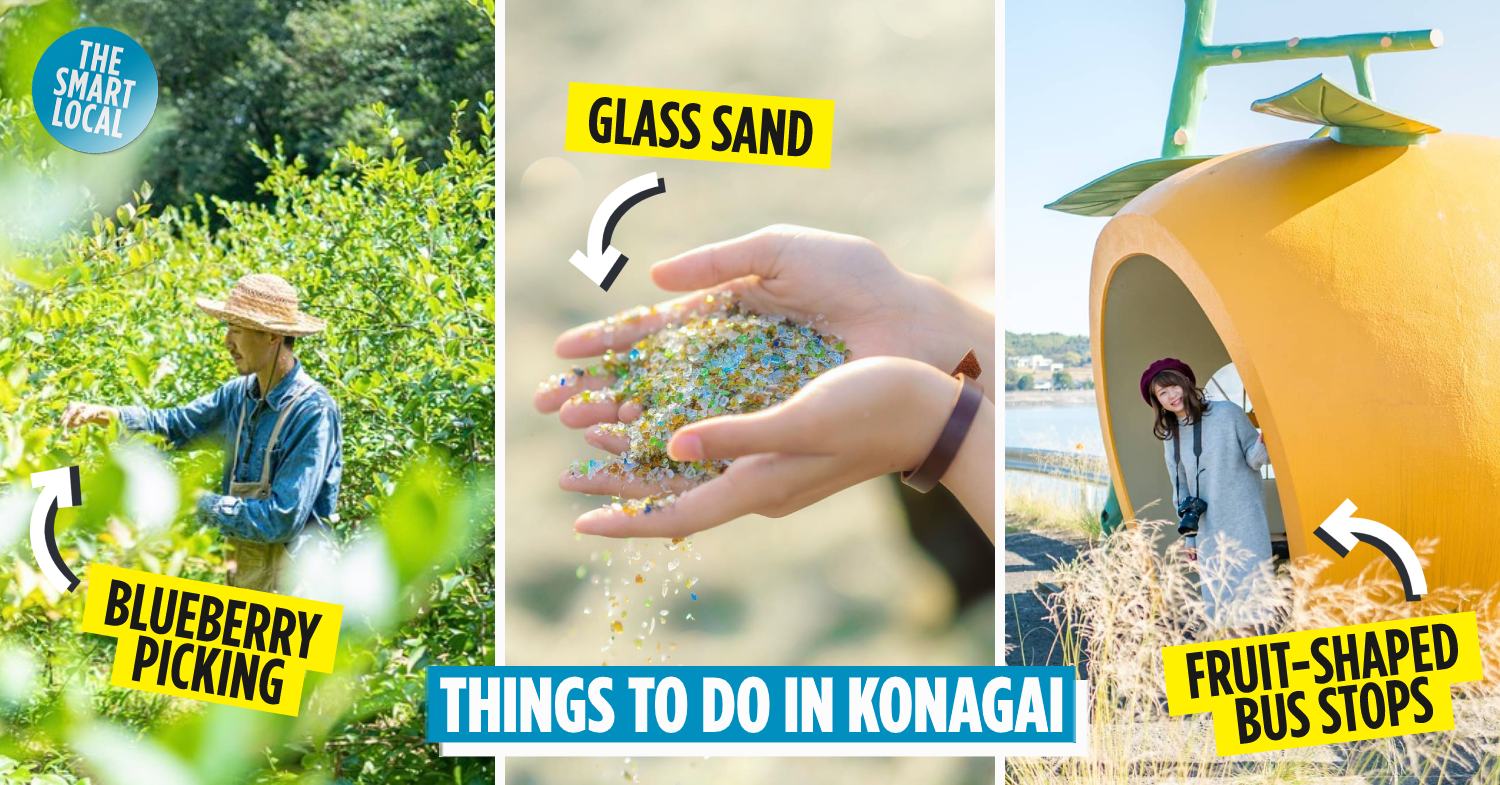Konagai day trip guide
Located just one hour from the bustling city centre of Nagasaki is Konagai, a small town home to a little over 5,000 residents. Despite its remoteness, the unassuming rural town has everything from adorable fruit-shaped bus stops to stunning waterfalls. Here’s our ultimate Konagai guide to help you plan the sweetest day trip to the area.
Getting there & navigating around
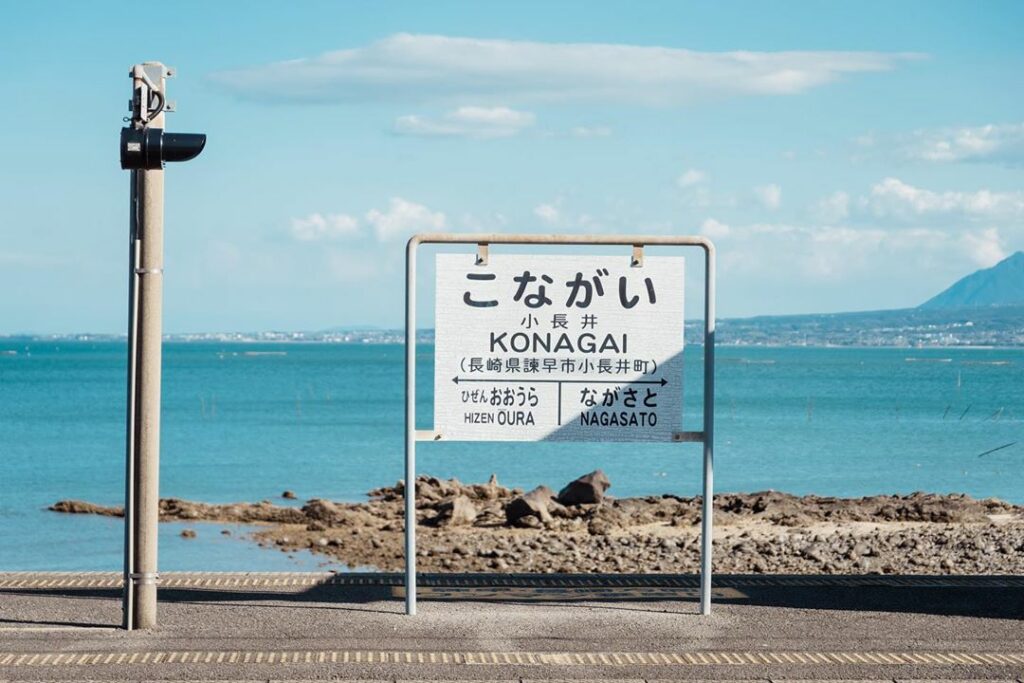
JR Konagai Station
Image credit: @onoyan_photo
To get to the quaint town of Konagai via public transport, we’d recommend starting your journey from Nagasaki Station as it provides the fastest and most direct access.
A local train ride on the JR Nagasaki Line from Nagasaki Station to Konagai Station will take a little over an hour. A one-way trip costs ¥860 (~USD8.18). Make sure to pack some light snacks and drinks in case you get hungry on the way there.
As with all countryside regions in Japan, local residents of Konagai rely primarily on cars to get around. The public transport network isn’t the most comprehensive in rural areas, so if you’re not driving, be prepared to do some walking and waiting. In a pinch, you can also take a taxi to get around the rural town of Konagai.
Things to do
1. Explore the adorable fruit bus stops
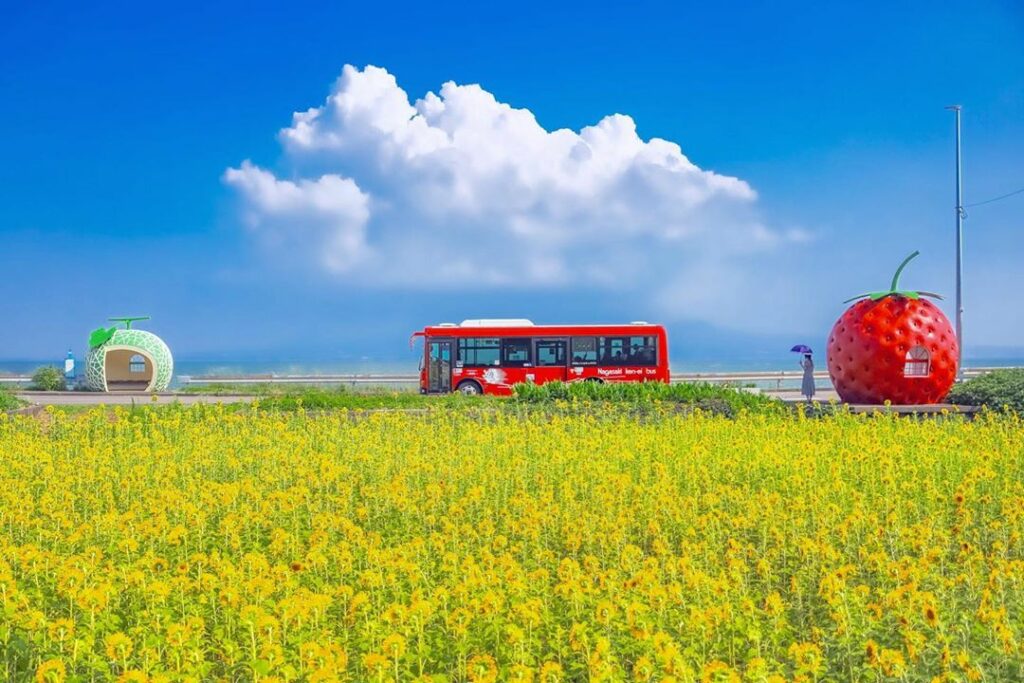
Image credit: @_sorakumo
Getting around without a car is no easy feat, but it is not impossible – it just requires a bit of strategic planning and research ahead of time. Once you’ve alighted the train, start your day of sightseeing by heading for the bus station in front of the station exit.
Running into Totoro at a bus stop in real life won’t happen any time soon, so you should opt for the next cutest thing instead – fruit-shaped bus stops in Konagai.
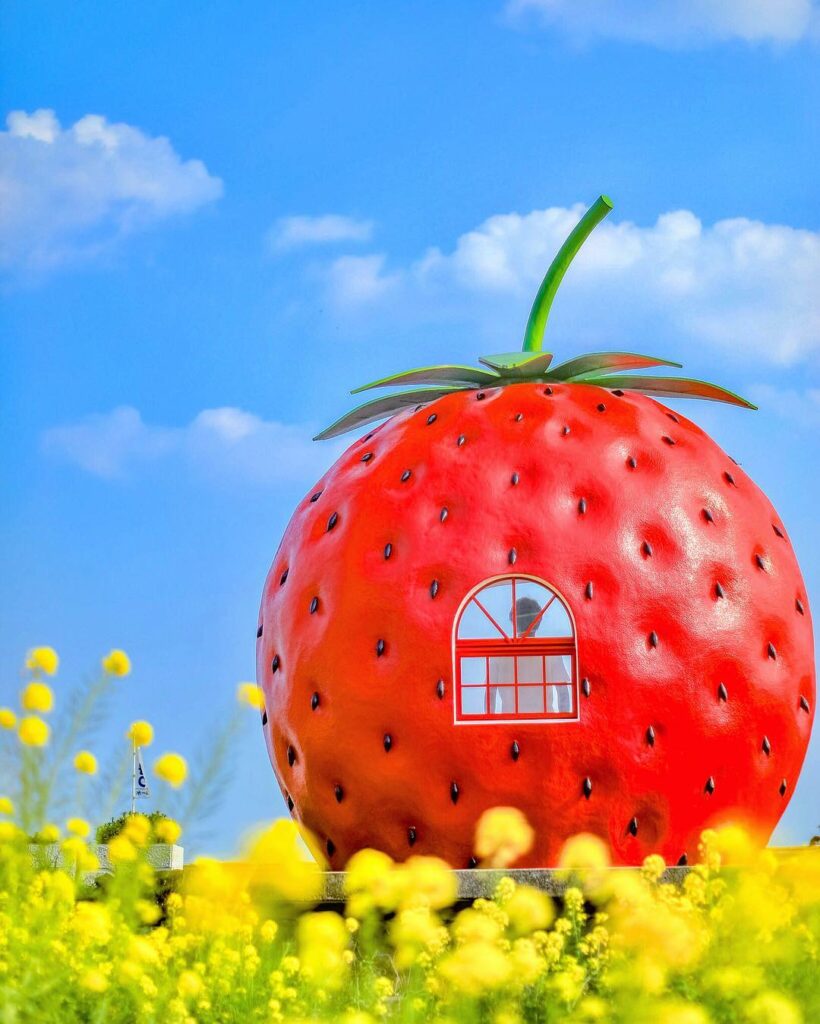
Strawberry bus stop
Image credit: @_sorakumo
Originally made for the 1990 Nagasaki Travel Expo, these adorable fruit-shaped bus stops peppered along highway route 207 in Konagai will make you feel as though you’ve been transported into a magical Studio Ghibli movie.
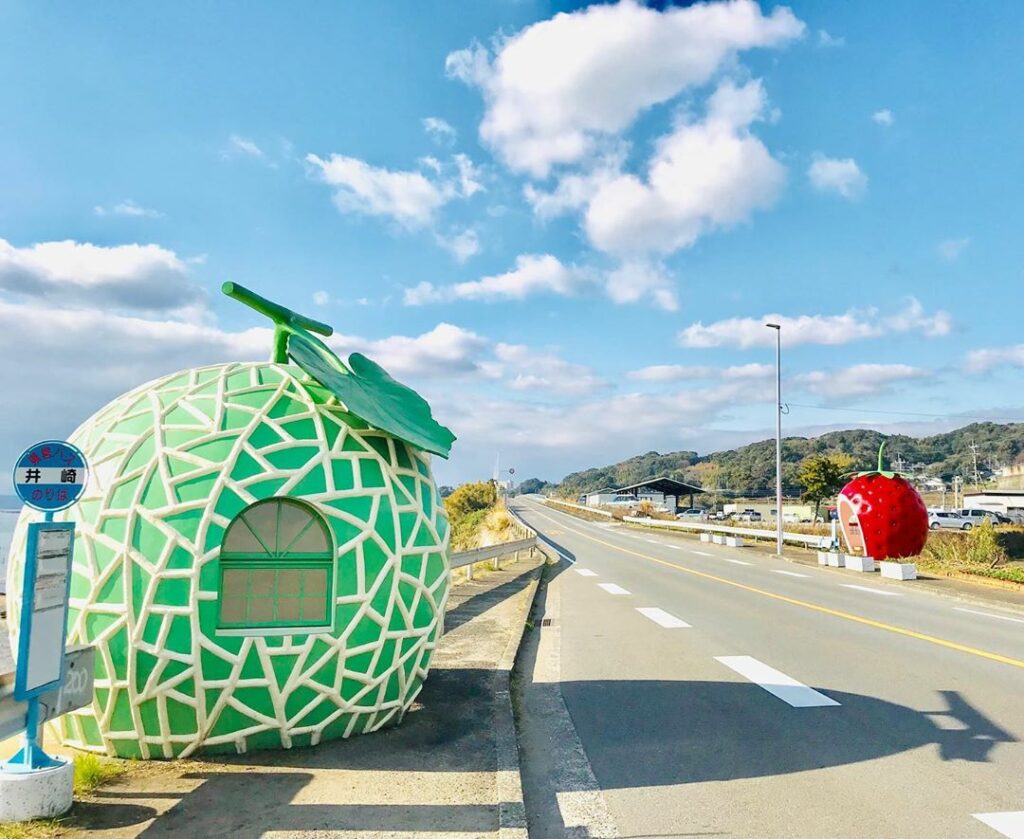
Izaki Station
Image credit: @sasaki_1103_
The town’s fruit bus stops have become quite popular among domestic tourists and budding photographers. The 16 lifelike bus stops comprise five of the town’s famous produce – melon, strawberry, orange, tomato, and watermelon.
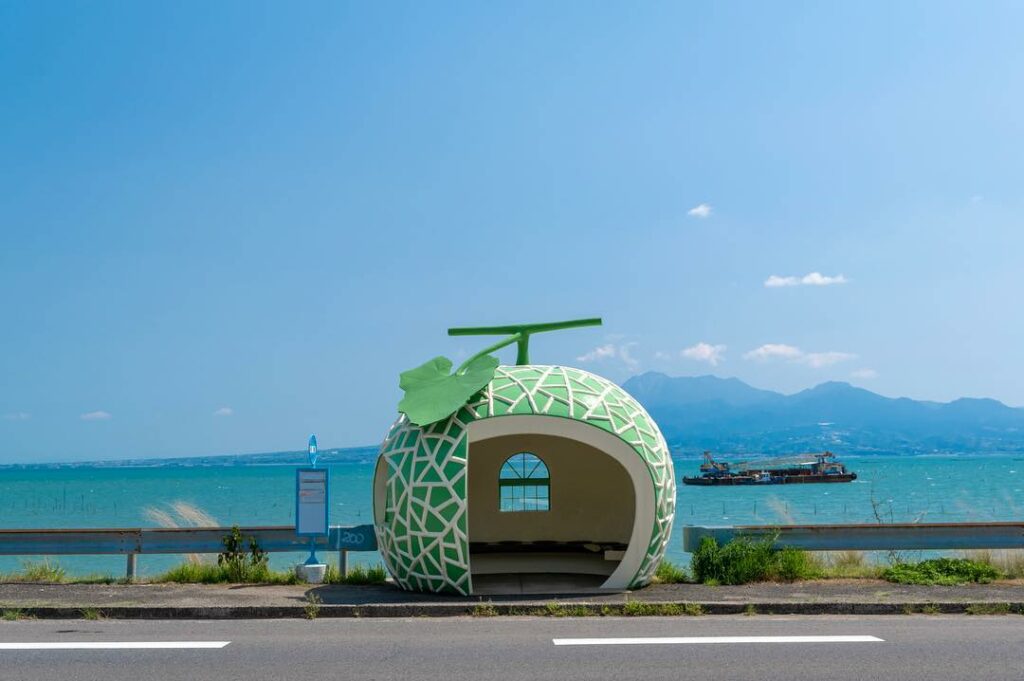
Izaki Station overlooking the Ariake sea
Image credit: @akira._0211
The buses go in two directions, but we’d recommend hopping on the bus that is headed to Saga Prefecture, which will bring you to two of the more well-known stations – Izaki (井崎) and Amidazaki (阿弥陀崎) bus stop. The popular Izaki Station features a bus stop with a rockmelon exterior and overlooks the breathtaking coastal view of the Ariake Sea.
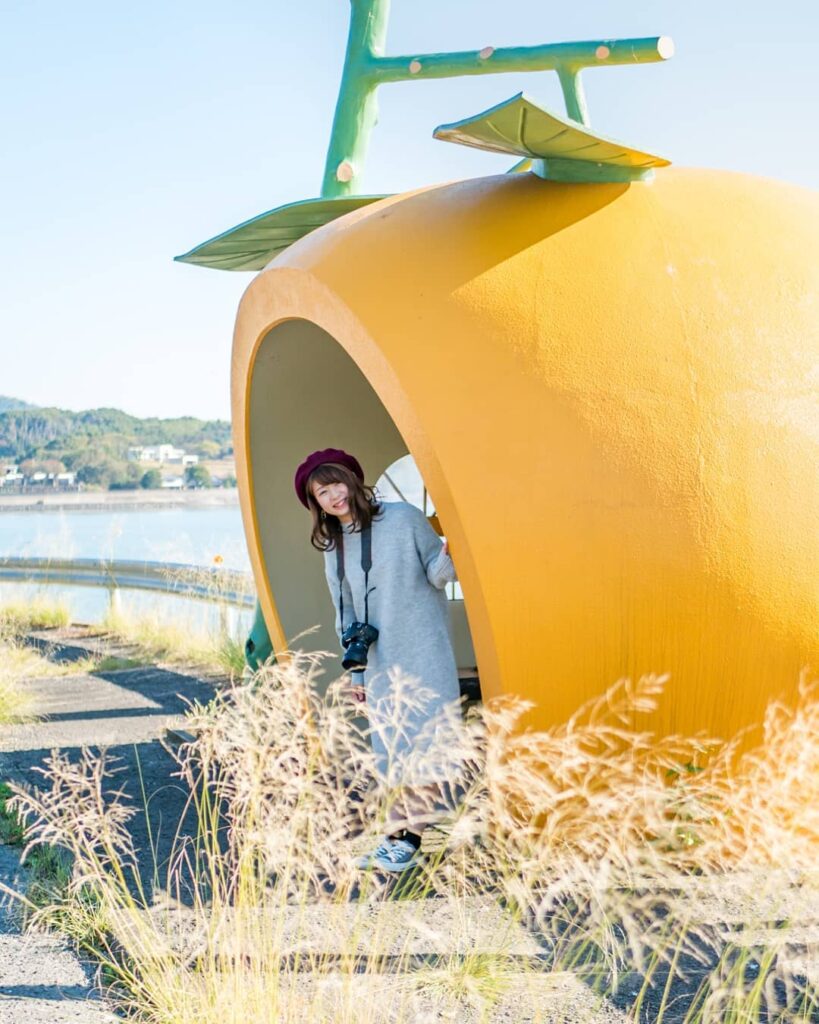
Amidazaki Station
Image credit: @aiaki_1
On the other hand, the bright orange-shaped Amidazaki station has gained fame for its cameo in commercials advertising Gatsunto Mikan, a popular orange-flavoured popsicle in Japan.
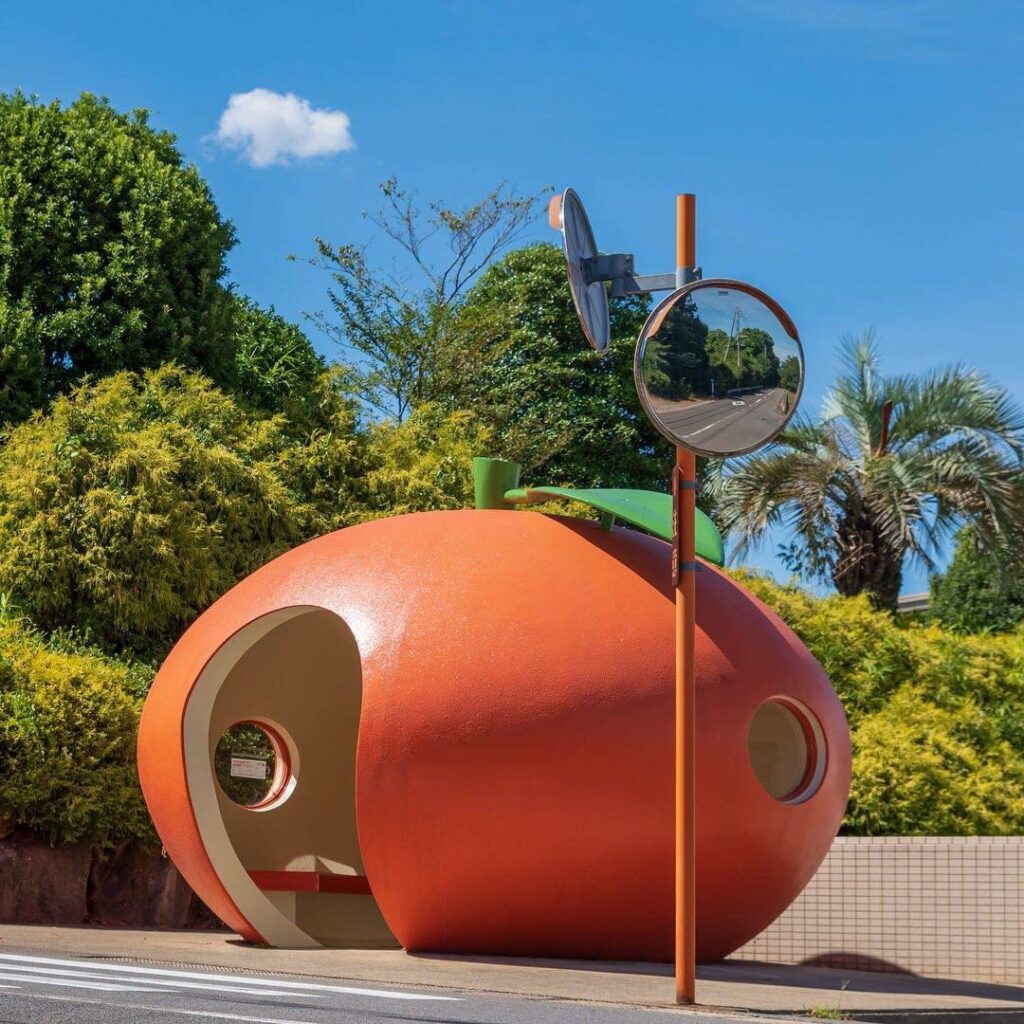
Image credit: @tk_calmiris
Unlike in tourist-friendly metropolitan cities such as Tokyo or Kyoto, the signs found in the remote town of Konagai are mostly in Japanese. If you can’t speak a lick of Japanese, it will be harder to get around.
But here’s a pro tip – jot down the kanji characters of the name of the routes and bus stops somewhere beforehand. It will come in handy when Google Translate fails you.
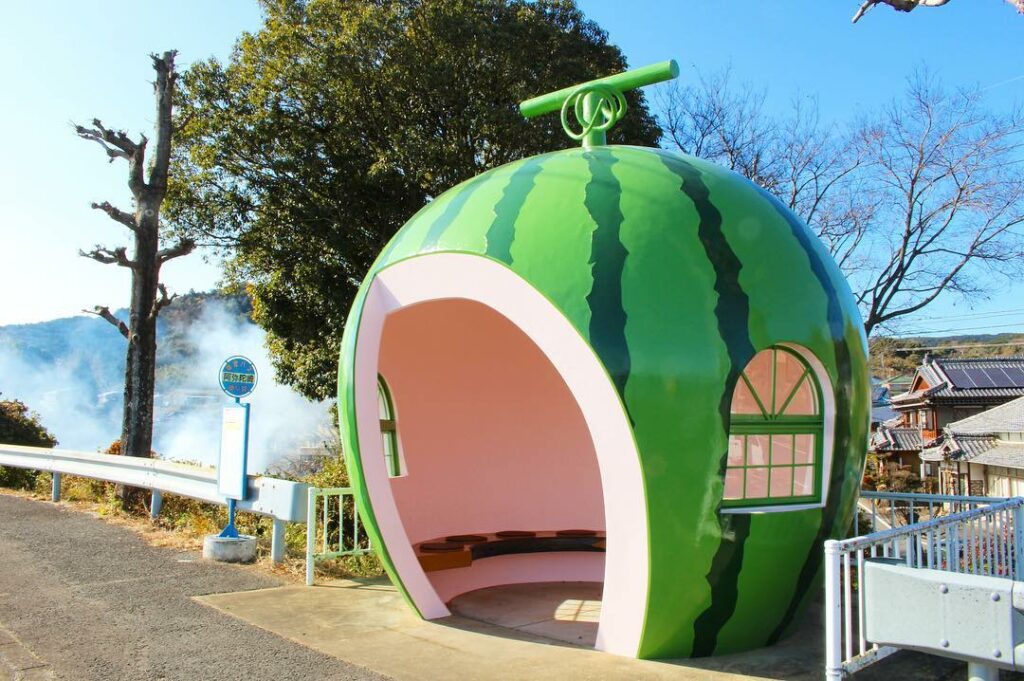
Watermelon bus stop
Image credit: @risa_nishino817
Bring along this comprehensive map of the bus routes and check out the timetable here so that you can plan ahead.
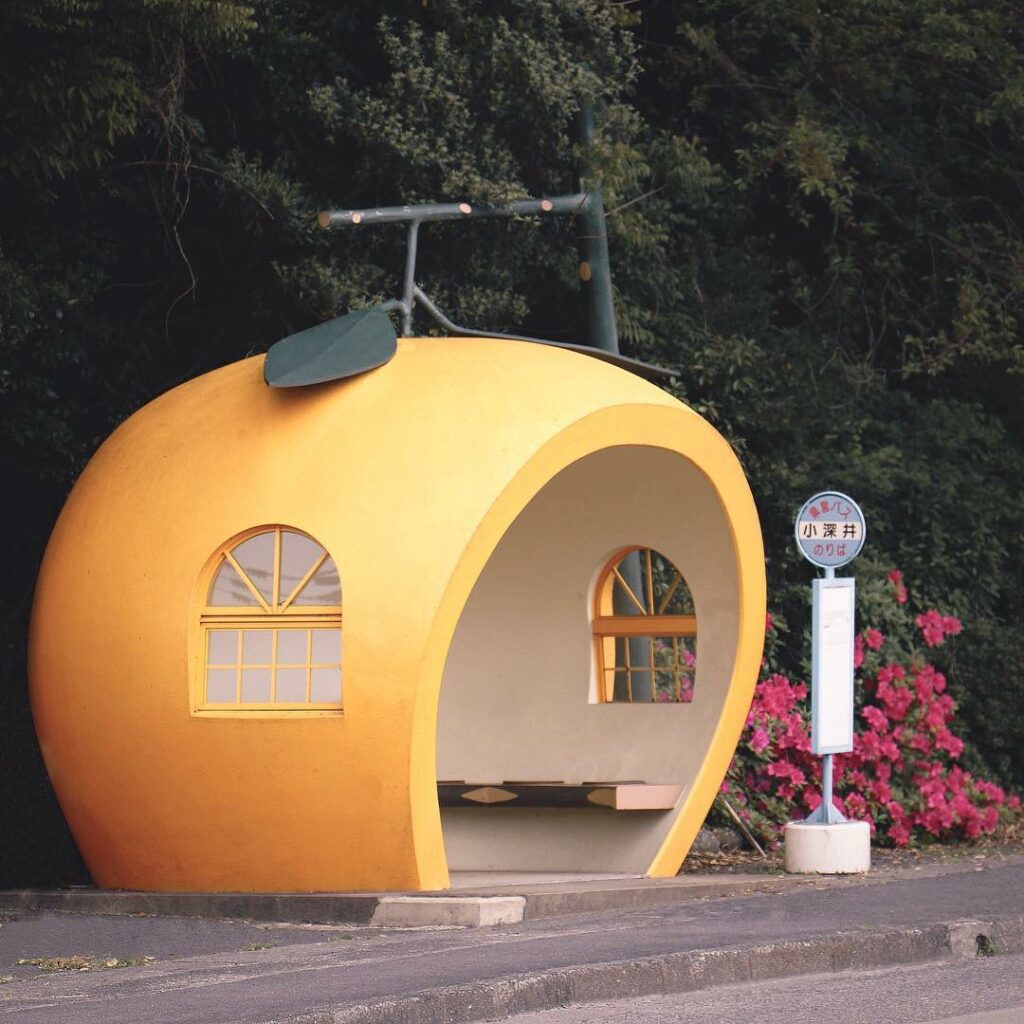
Orange bus stop
Image credit: @_erin_louise
Buses in rural Japan are punctual but infrequent, so make sure you stick to your itinerary or you’ll risk missing your ride.
For that reason, you’d be better off visiting three to four stops at a leisurely pace, instead of having a jam-packed itinerary and stressing over having to cover all 16 stops. The bus stops of the same fruit variety look almost exactly identical, so don’t worry about missing out.
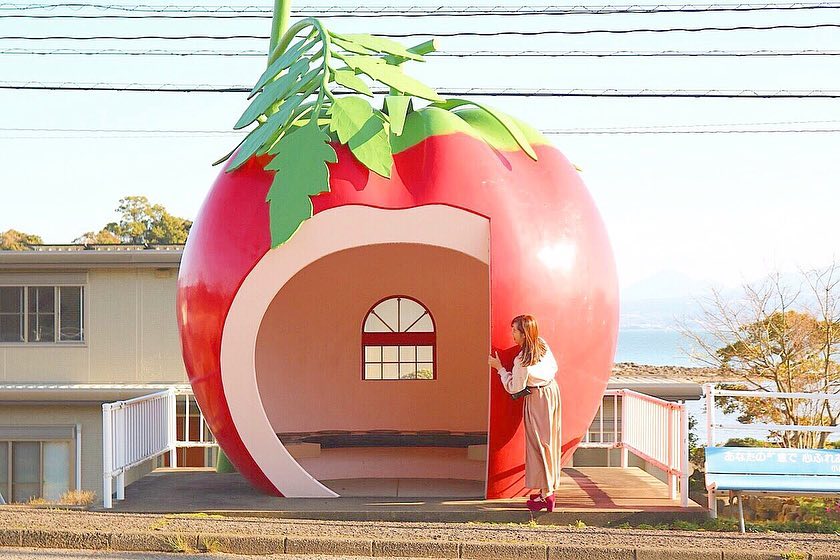
Tomato bus stop
Image credit: @_reinastagram_
While you’re trying to take the best shot, don’t forget to keep a lookout for passing cars as the bus stops are scattered along the highway.
Opening hours: 24 hours, Daily
Address: National Route 207, Konagai-cho, Isahaya, Nagasaki
2. Trek to the Todoroki Gorge
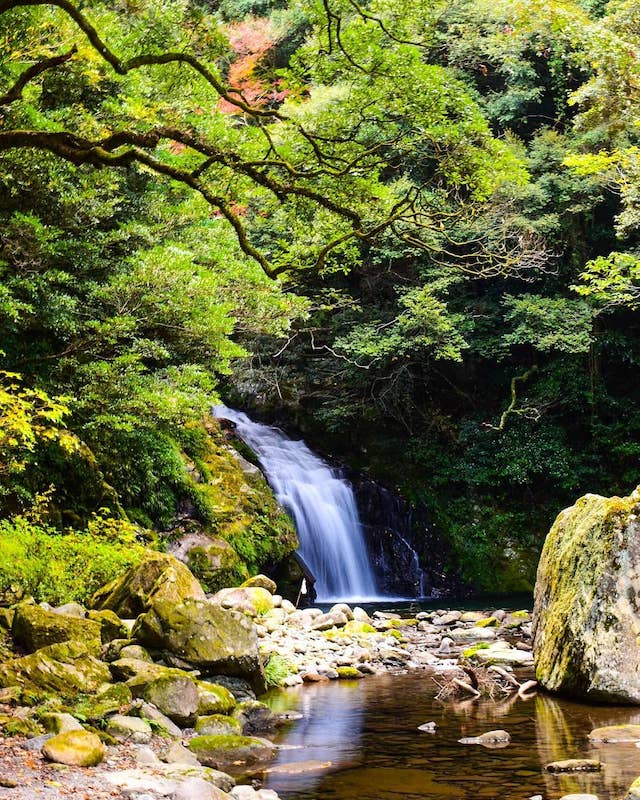
Image credit: @kk.giuseppe1015
For a gorgeous natural retreat, visit the Todoroki Gorge. Over 30 waterfalls of varying sizes can be found in the area, with the most famous one being Todoroki Falls. The water in the gorge is so clear that it has been designated as one of the “Top 100 Famous Water” (水源の森百選) in Japan by the Ministry of Environment.
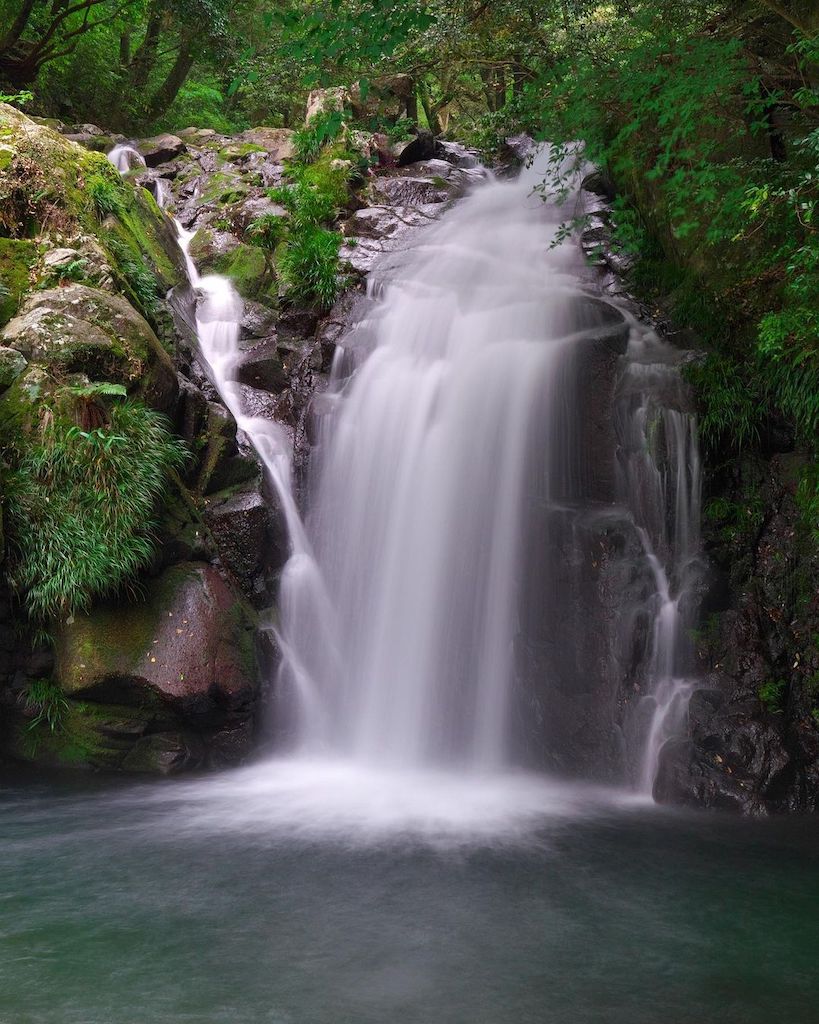
Image credit: @suihuyou
There’s quite a bit of distance from the nearest station, Nagasato Station – which is 1 stop away from Konagai Station – as it requires a short 15-minute drive. If you don’t have a rental car or don’t want to splurge on a taxi ride, you can also trek to the gorge from the Nagasato Station. The journey on foot will take a little under 2 hours.
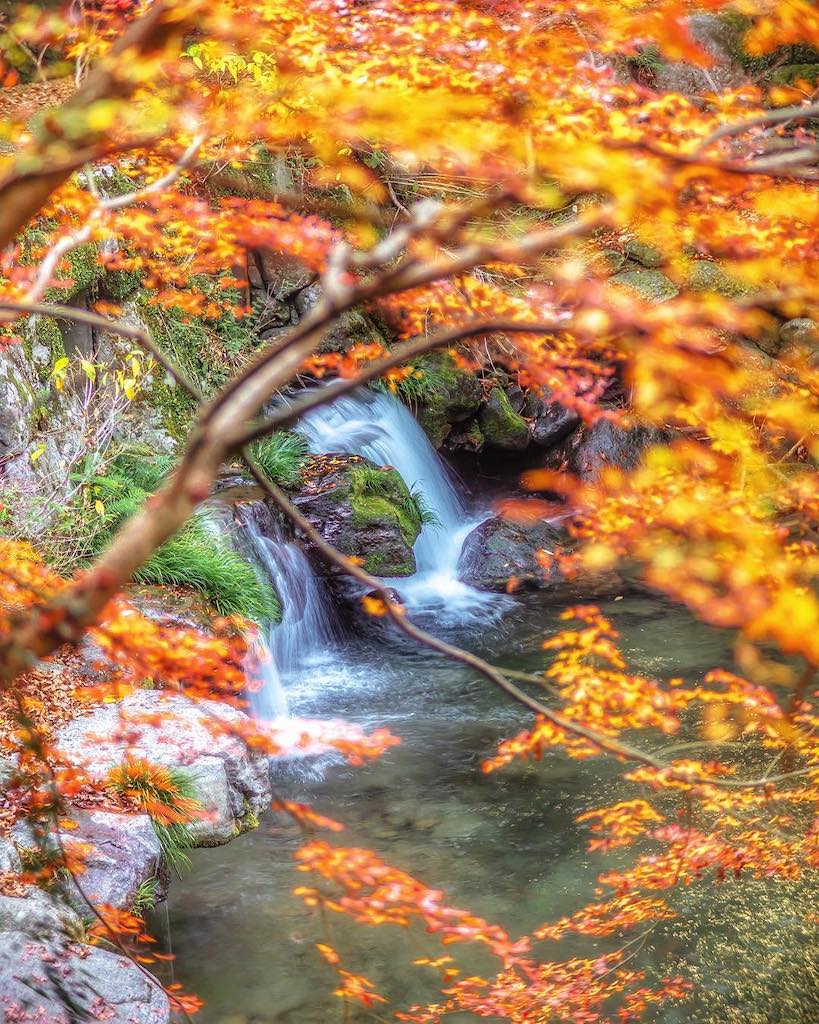
Image credit: @saku_39line
Due to a sudden landslide in July 2020, the area to view Todoroki Falls is currently closed to the general public.
Opening hours: 24 hours, Daily
Address: 1106-37 Takakicho Zenjuji Oyama, Isahaya 859-0125, Nagasaki
3. Go blueberry picking at an organic blueberry farm
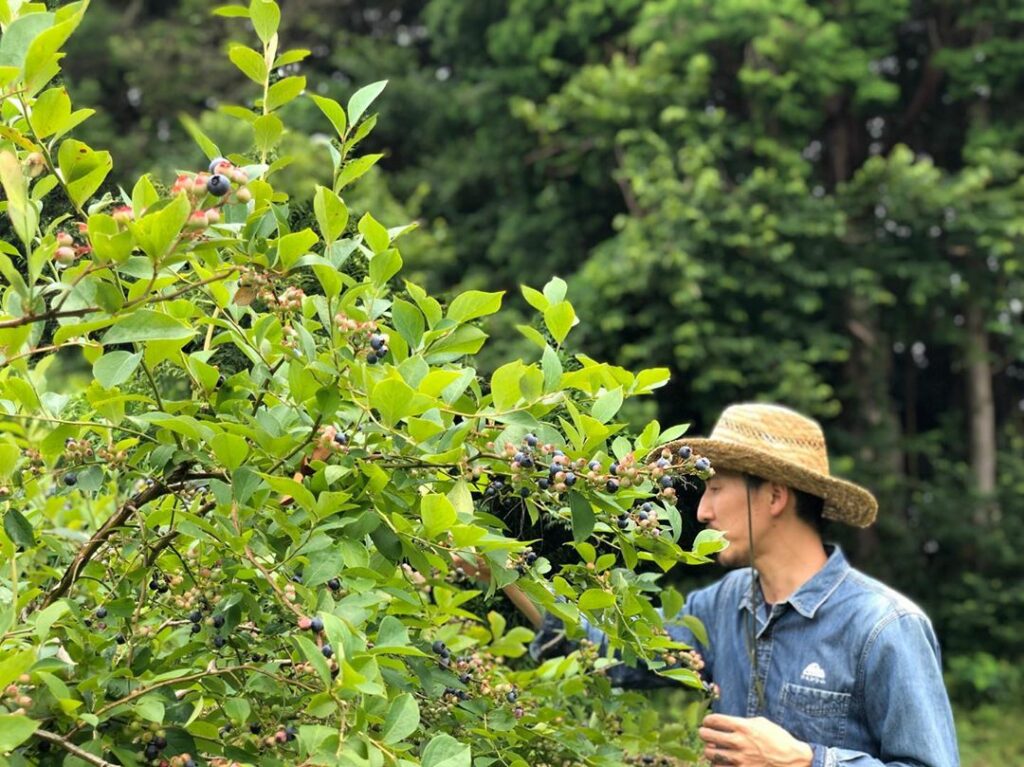
Image credit: @nonbiriyama
For an authentic countryside experience, go blueberry picking at Nonbiri no yama (のんびりの山). Located on the prefectural border between Saga and Nagasaki, the organic blueberry farm is situated right at the foot of Mount Tara, one of the tallest mountains in Kyushu.
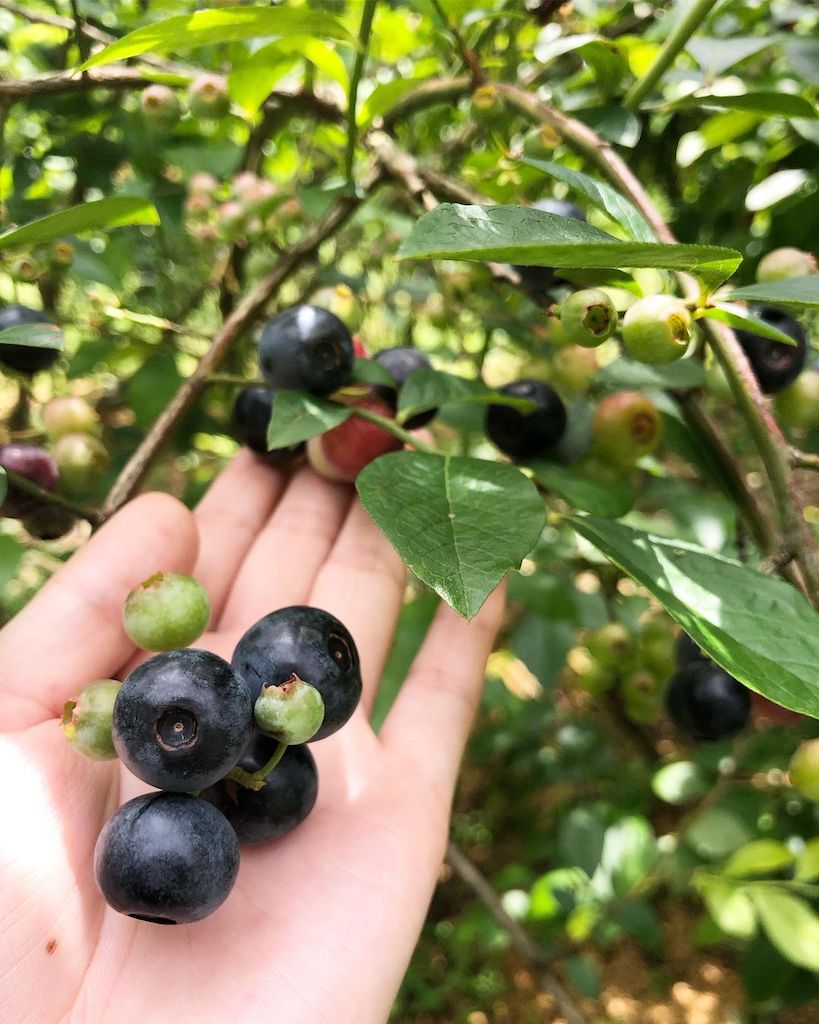
Image credit: @nonbiriyama
As the farm is closed most of the year, the best time and only time to visit for fruit picking is during peak blueberry season from July to late August. Admission to the farm costs ¥1,500 (~USD14.23) for adults and ¥800 (~USD7.59) for children.
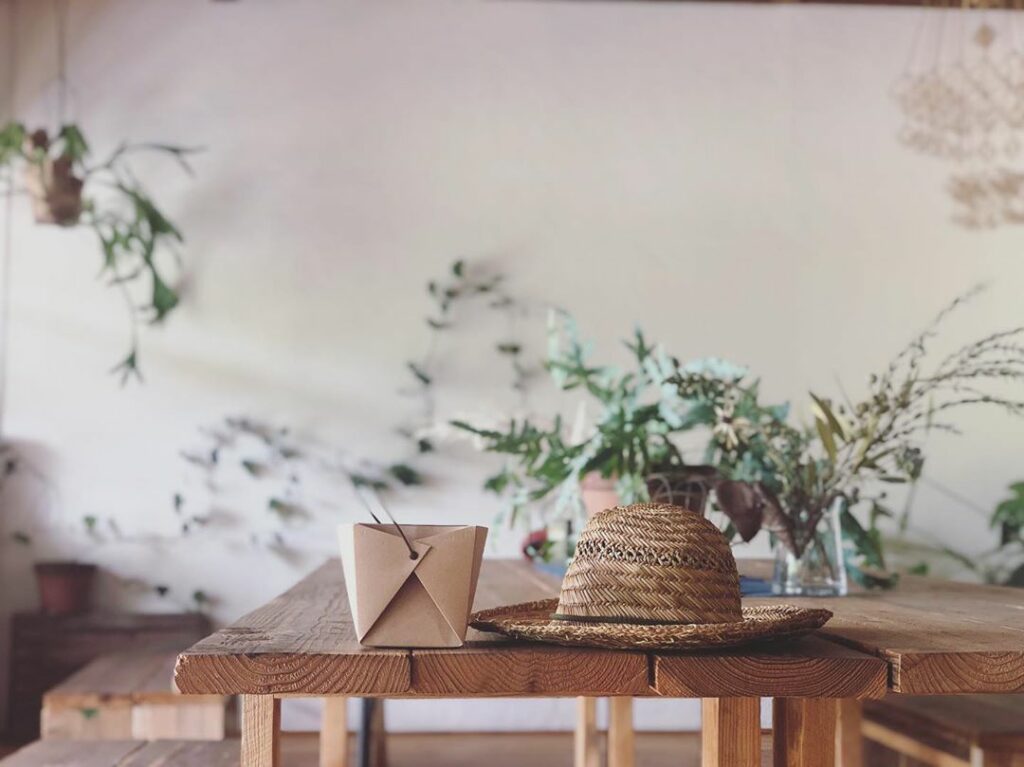
Image credit: @nonbiriyama
Apart from fruit-picking, visitors are also free to eat as many blueberries as they want within their assigned time slots. The morning session starts from 10PM and ends at 12.30PM, while the afternoon slot is from 2PM to 5PM.
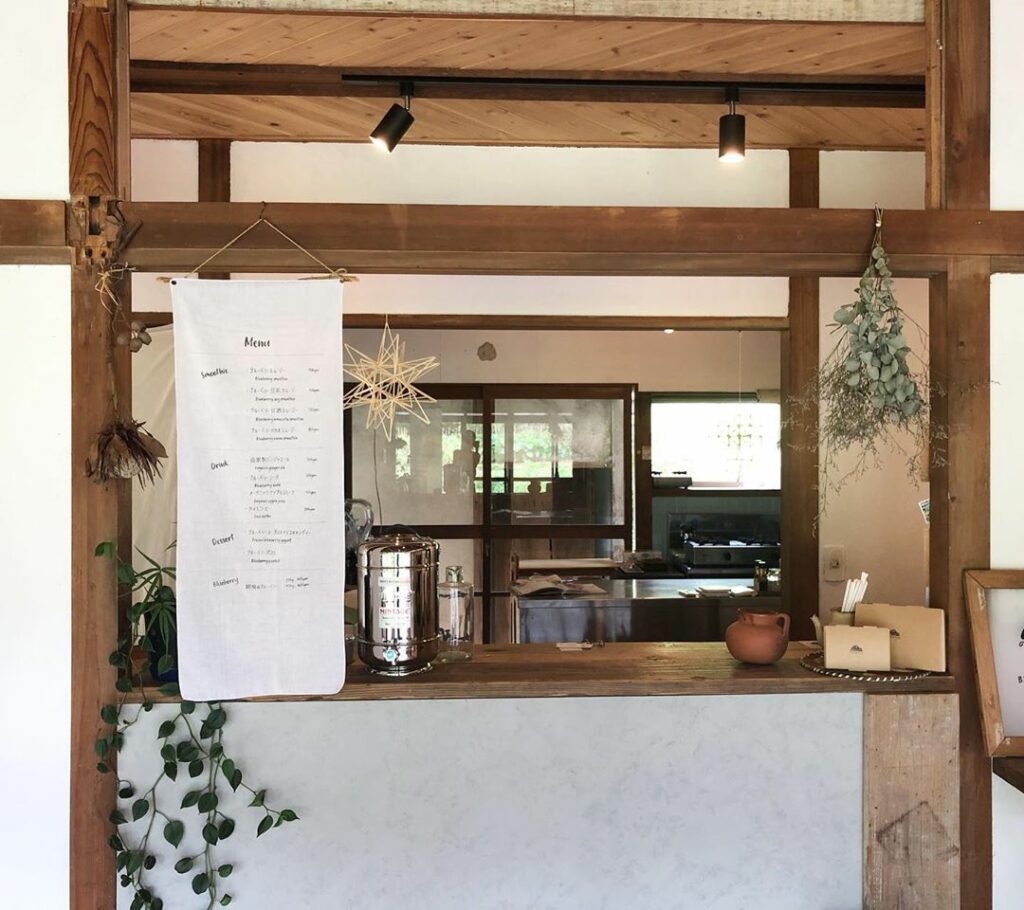
Image credit: @nonbiriyama
If you’d like to bring some of the fresh produce home, takeaway boxes that can fit around 400g of blueberries are available for sale at ¥800 (~USD7.59).
Reservation is required, so book a slot here if you’re planning to visit the farm in the future.
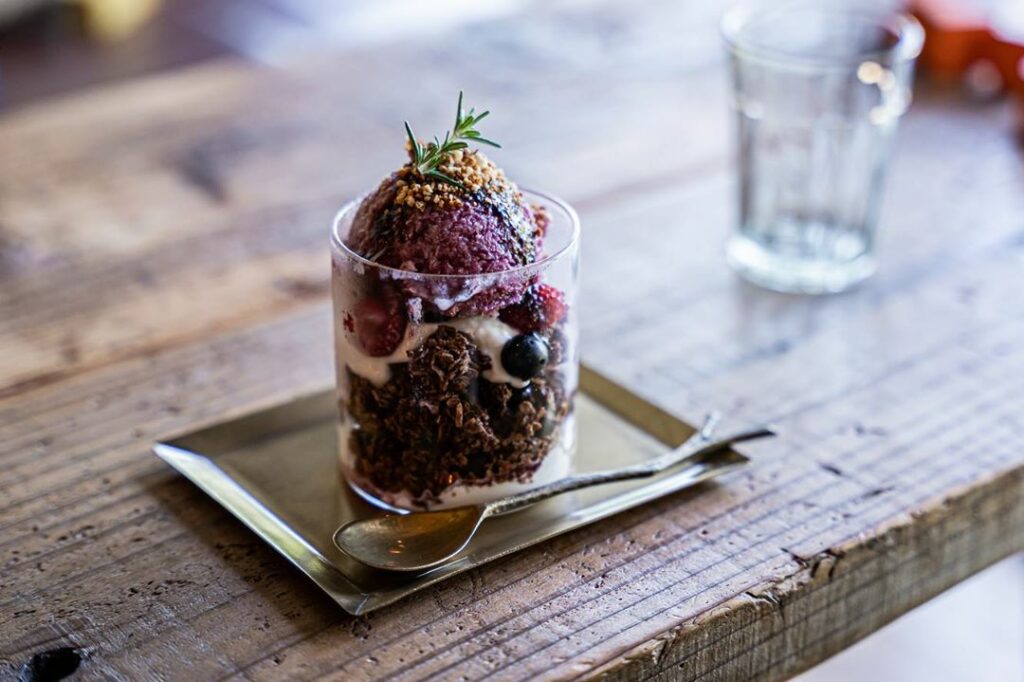
Image credit: @ukawa_photo
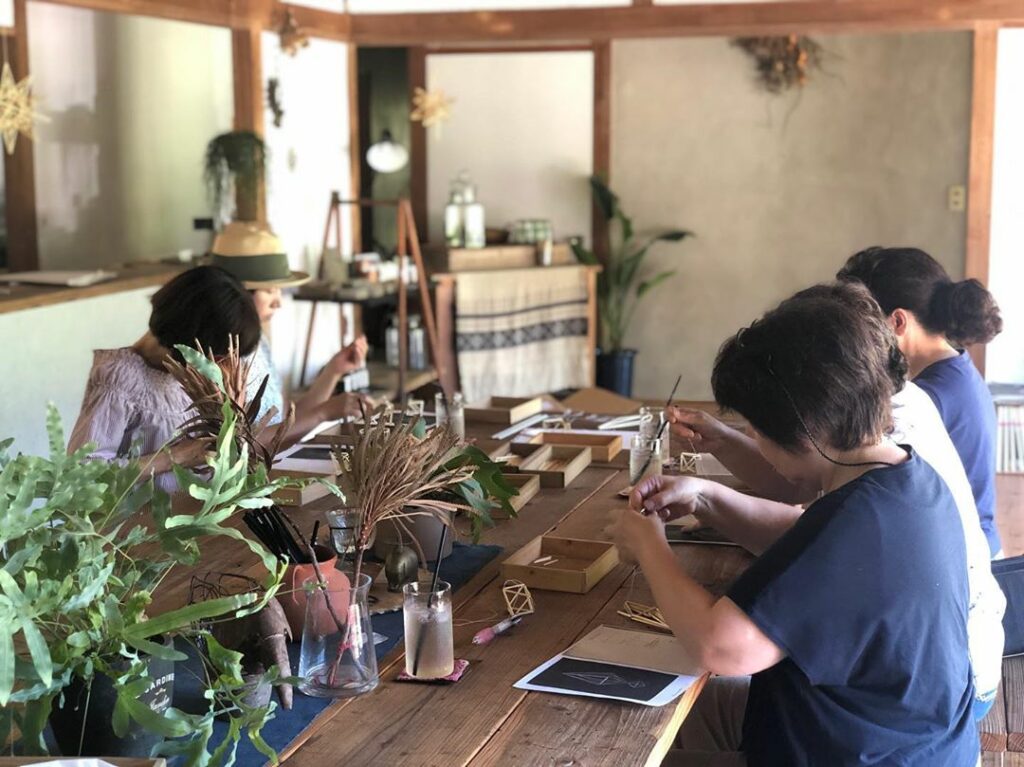
Image credit: @nonbiriyama
Once you’re done picking berries, head over to their café, or rest space, which is situated next to the farm. There, they sell drinks such as coffee, lemonade, and blueberry smoothies, as well as baked goods and an assortment of homemade jams.
Blueberry farm
Opening hours: 10AM-5PM, Daily (Jul-Aug)
Address: 13-3 Konagaicho Tabaru, Isahaya-shi, 859-0163, Nagasaki
Telephone: 0957-34-3601
Website
Rest space
Opening hours: Sat – Thur 10AM-6PM (Closed on Fridays)
4. Have fun at Sazanka Highland Picnic Park
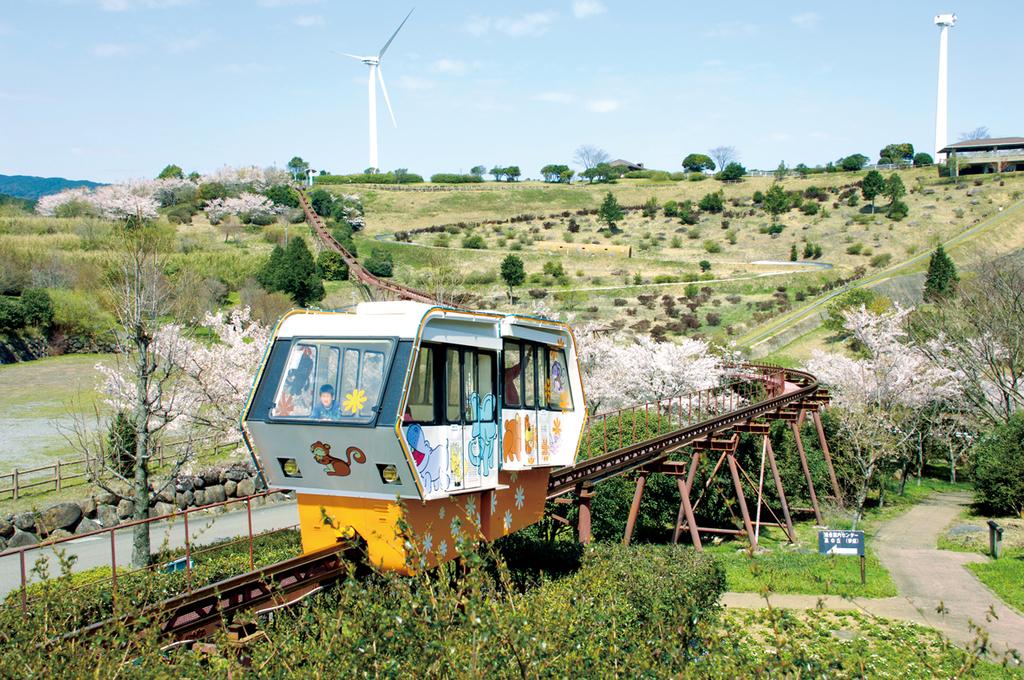
Monorail in the park
Image credit: Nagasaki Tabinet
Take the bus to the last stop, みさかえの園 (misa kae no en), a strawberry-shaped bus stop. You’ll arrive at Sazanka Highland Picnic Park, where you can have a day of unadulterated fun.
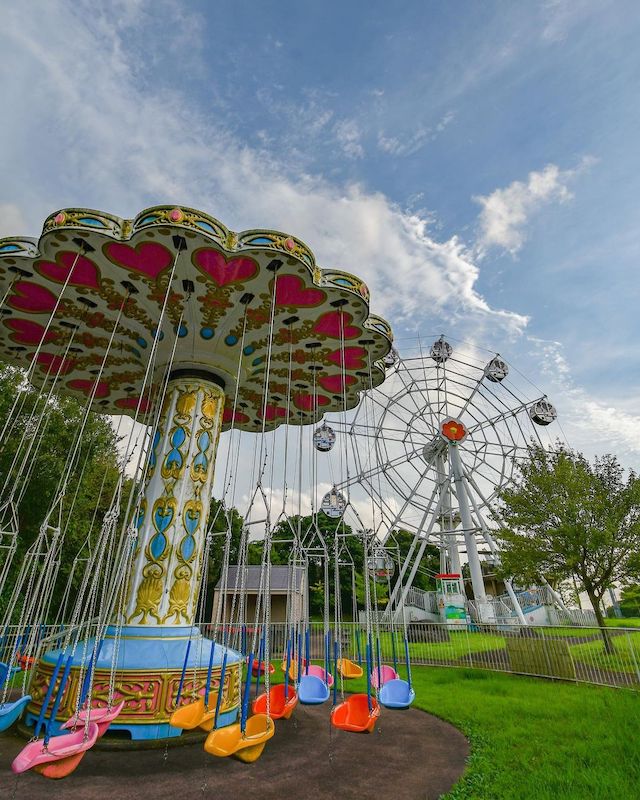
Image credit: @samidare0314
At an altitude of 450m, the 30-hectare park spanning the hillside of Mount Tara offers a panoramic view of Mount Unzen across the Ariake Sea. On clear cloudless days, you can even see Kumamoto in the distance.
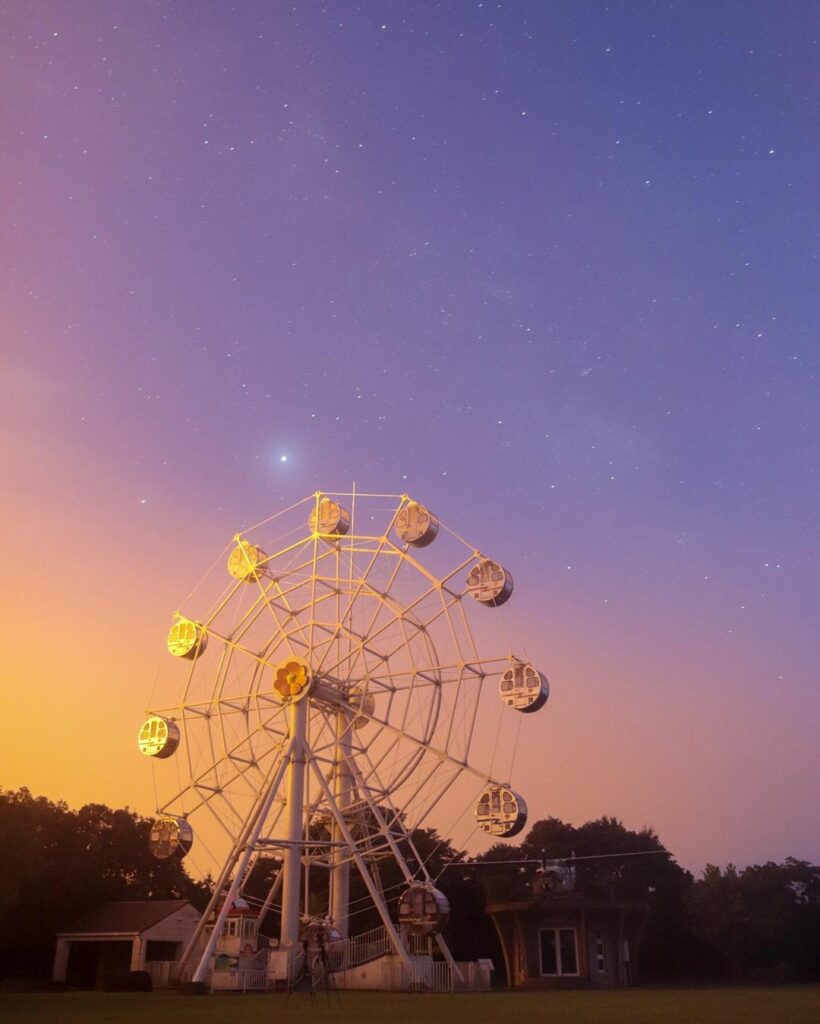
Image credit: @itou_2678
From giant slides to roller skates, there are plenty of playground equipment available. Admission to the park is free, though you’d have to pay to go on select rides. Don’t miss the herb garden with over 250 varieties of herbs planted, as well as a wide selection of herb-related products sold there.
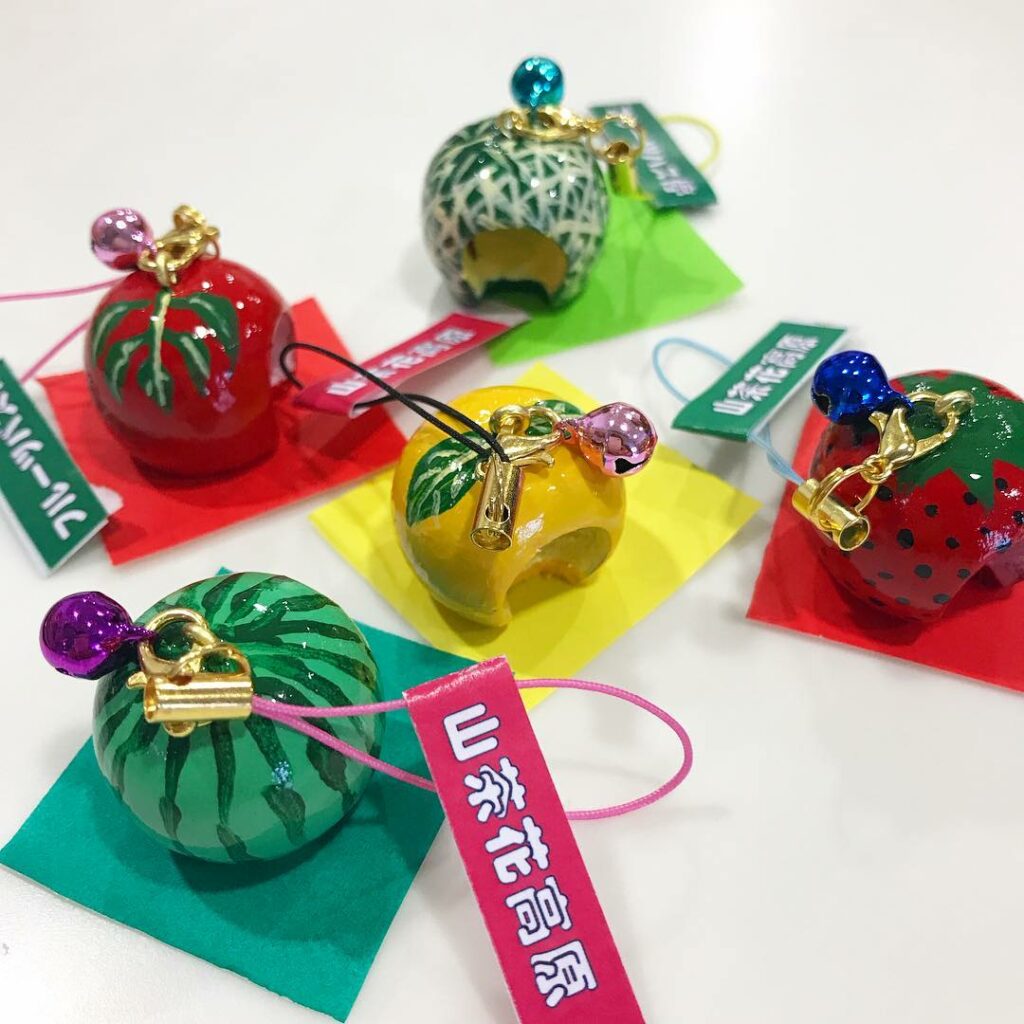
Fruit bus stop keychains
Image credit: @miesan_2525
After you’ve had your fill of fun, end your day with a visit to the souvenir shop and get yourself a fruit bus stop keychain to commemorate your day in Konagai.
Opening hours: Wed – Mon 10AM-5.30PM (Mar-Oct) | Wed – Mon 10AM-5PM (Nov-Feb)
Address: 2872 Konagaicho Todake, Isahaya, 859-0167, Nagasaki
Telephone: 0957-34-4333
Website
5. Grill and eat fresh oysters
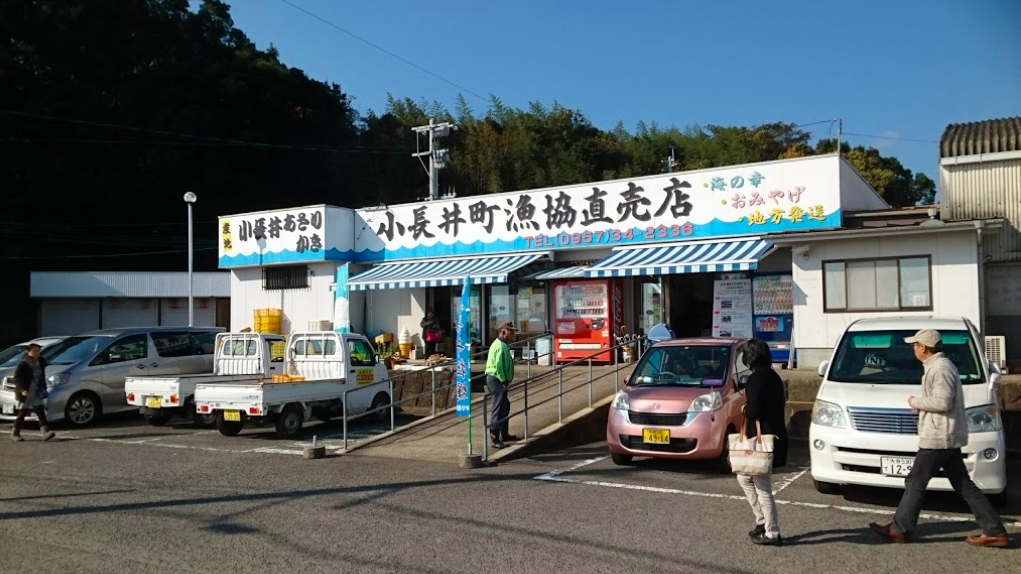
Image credit: doberman BOSS
Thanks to its proximity to Isahaya Bay of the Ariake Sea – a prime location for oyster farming – the town of Konagai is famous for their oysters.
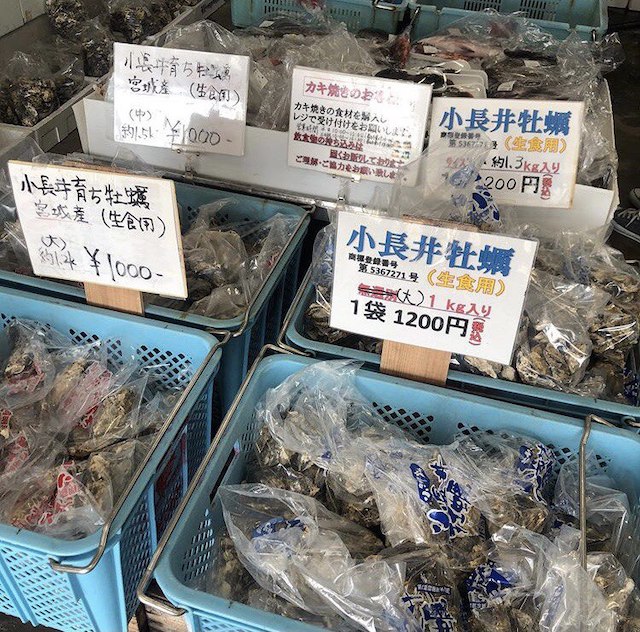
Oysters sold in bags
Image credit: @hitomimosa
Konagaicho Fishery Cooperative Wholesale Store (小長井町漁協直売店) is the place to be if you want fresh oysters at a good price. The shop sells seafood freshly harvested from the sea, along with other local produce and products. Oysters are sold in bags of varying weights.
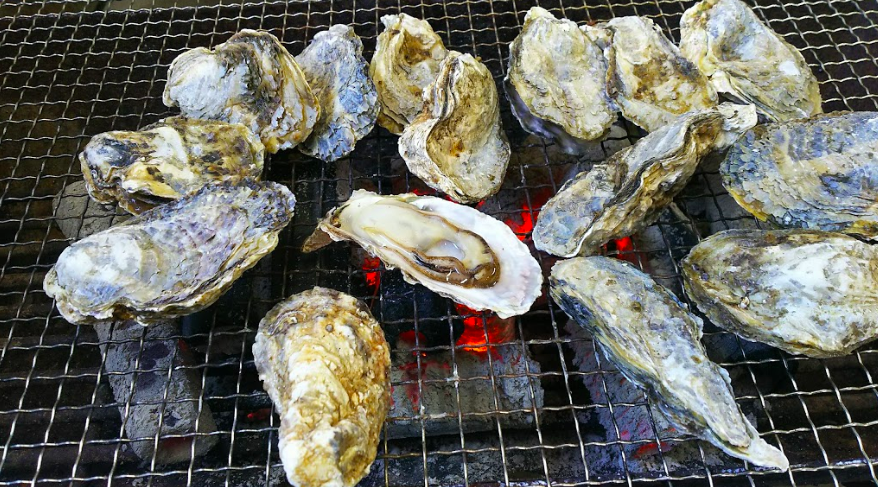
Image credit: Yanase Eiji
During peak oyster season, which is between November to March, customers can grill and enjoy their freshly bought seafood at the shop’s “oyster hut”. Just fork out an additional fee of ¥500 (~USD4.74) and you’ll be given a charcoal grill, along with utensils and cotton gloves.
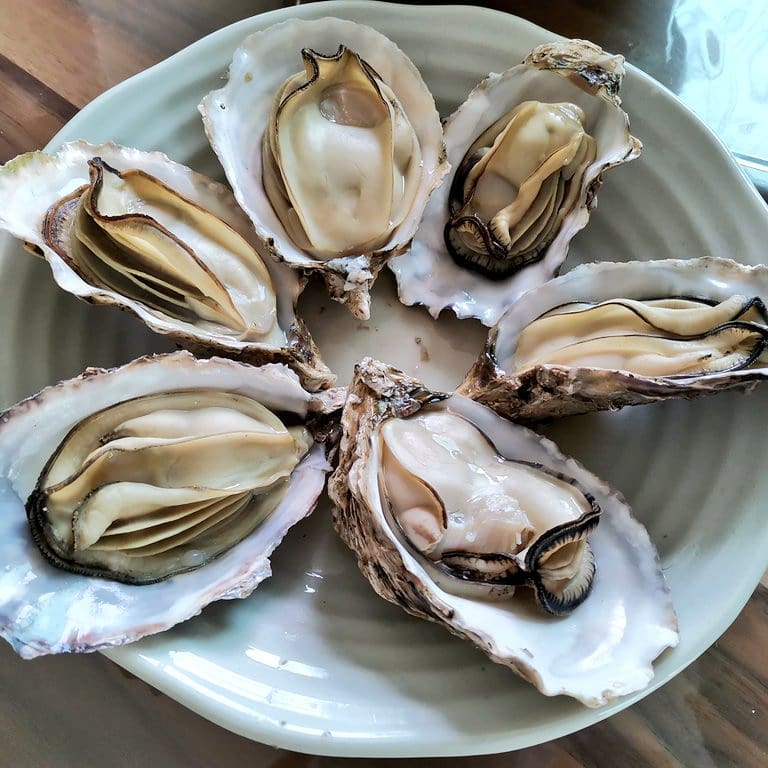
Image credit: @ta0416
Save yourself the trouble of trying to crack open the shellfish by renting an oyster shucking knife for a deposit of ¥100 (~USD0.95), which will be returned to you at the end of your meal.
Wholesale store
Opening hours: 9AM-5.30PM, Daily
Address: 816-3 Konagaicho Todake, Isahaya, 859-0167, Nagasaki
Telephone: 0957-34-2336
Website
Oyster hut
Opening hours: 10AM-4PM, Daily (Nov-Mar)
6. Grab a sweet treat at Okashi no ie Cocolo
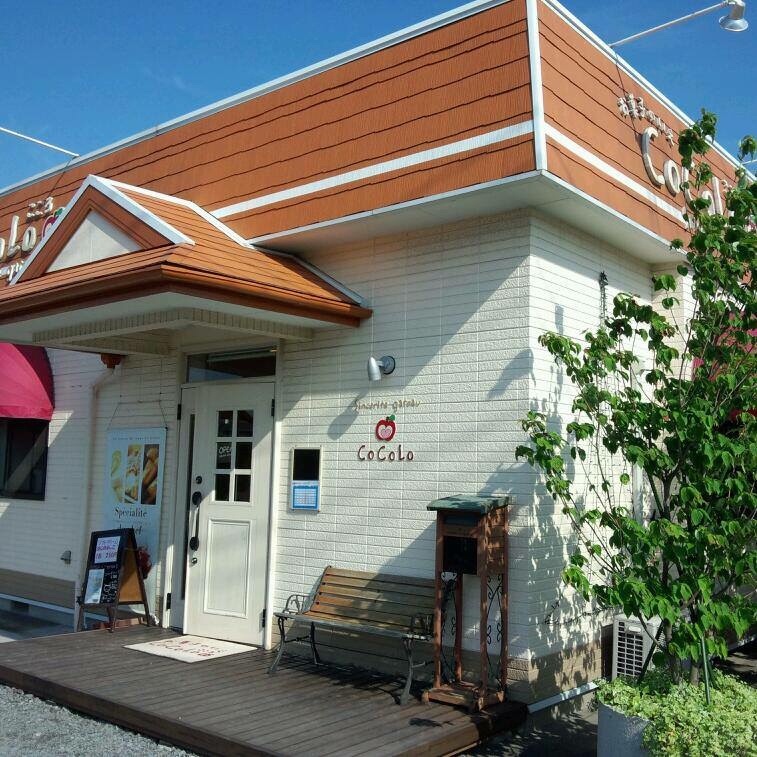
Image credit: Okashi no ie CoCoLo
To end off your day on a sweet note, visit Okashi no ie CoCoLo (お菓子のいえCoCoLo).

Image credit: @kyushulabo
This unassuming bakery in a nondescript corner along the highway has gained popularity for its dainty treats. The owner of the bakery decorates plain old sugar cookies with colourful icing and turns them into miniature edible fruit bus stop cookies.
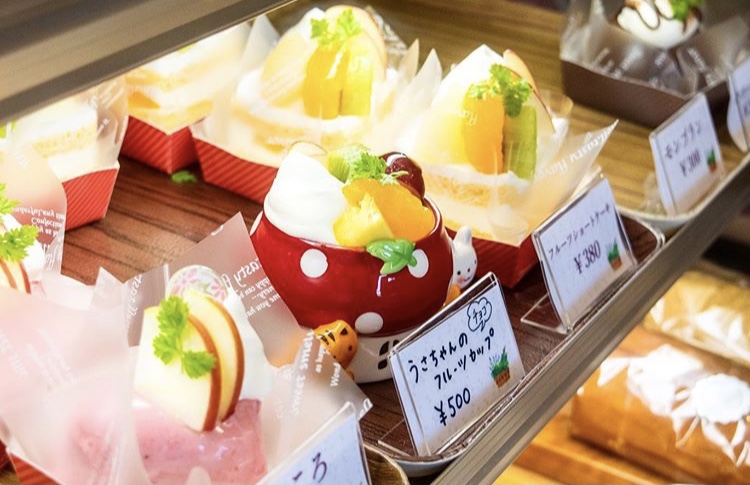
Image credit: @tsutsuchi2773
The cookies are sold in sets of 2, 3, and 5 pieces at ¥230 (~USD2.18), ¥340 (~USD3.22), and ¥500 (~USD4.74) respectively. Besides their signature cookies, Okashi no ie CoCoLo also offers a wide selection of desserts such as strawberry shortcakes and cheesecakes.
Opening hours: Thur – Tue 10AM-7PM (Closed on Wednesdays)
Address: 84-1 Takakicho Mizoguchi, Isahaya, 859-0144, Nagasaki
Telephone: 0957-32-6161
Website
Places to visit near Konagai
7. Visit Yūtoku Inari Shrine
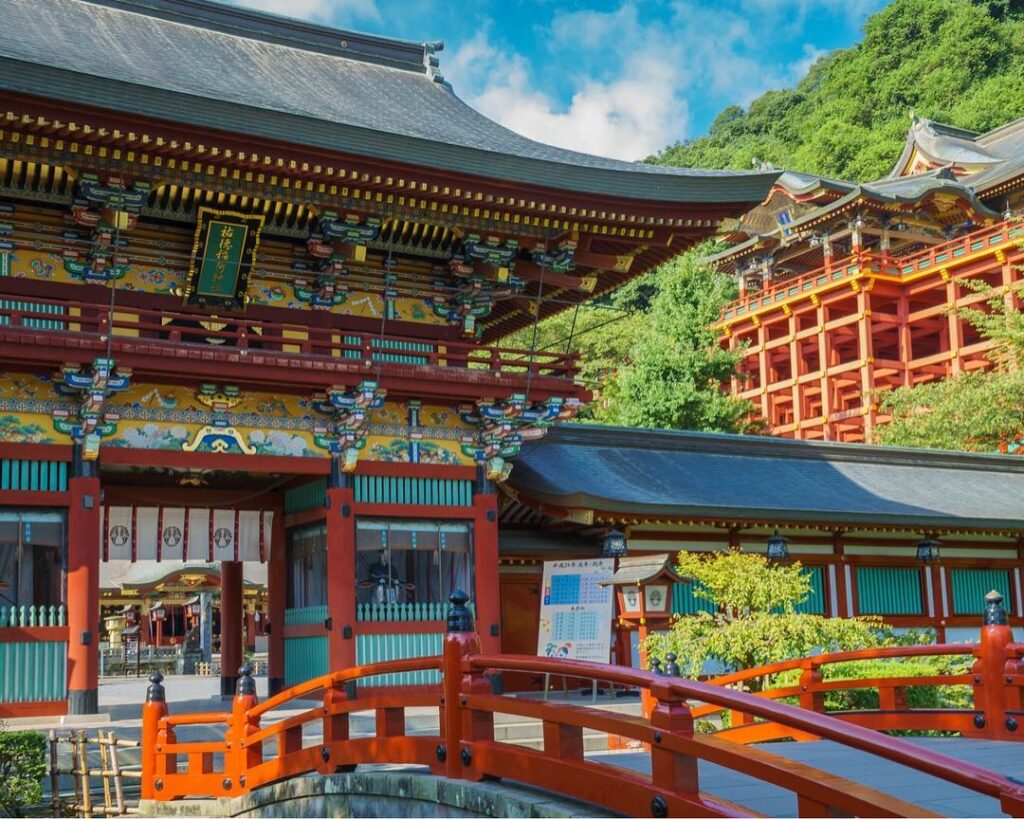
Image credit: @walkjapantv
Yūtoku Inari Shrine is technically not in Konagai. But given its proximity to the town and the fact that you’ve already gone out of the way to reach the remote town, we’d recommend you to go a bit further and give this gorgeous shrine a visit. It takes just one hour by train and bus ride from Konagai Station.
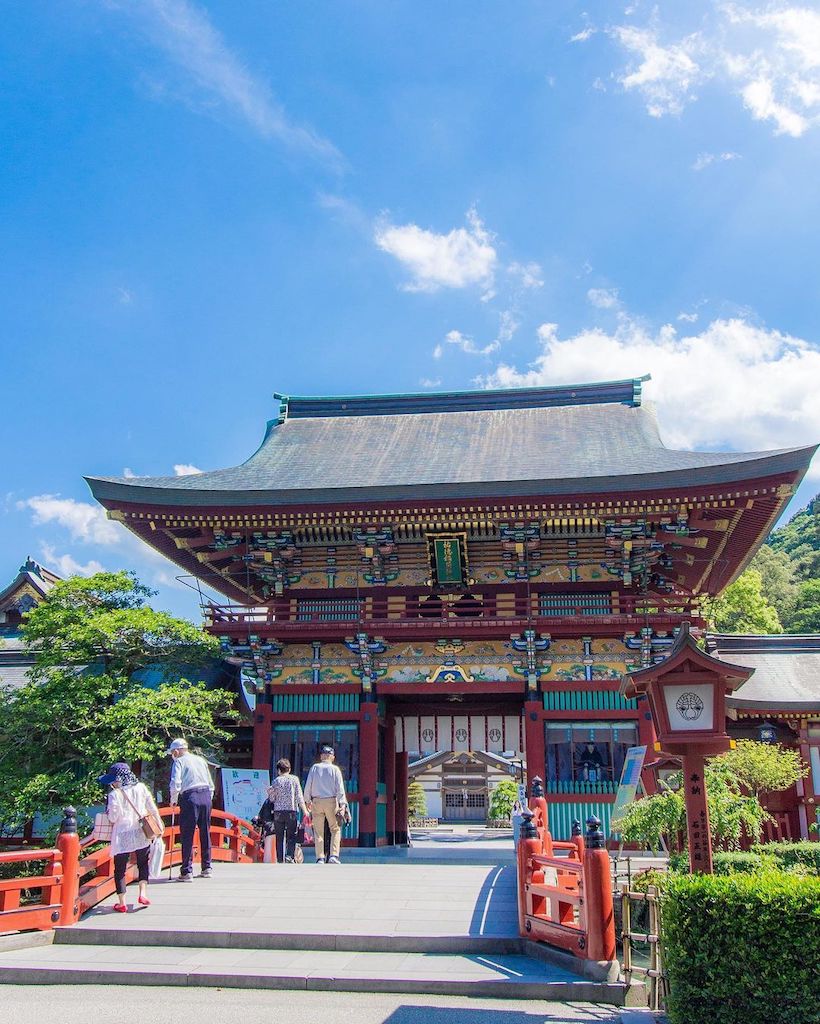
Image credit: @misappe_ringo
As one of the most famous Inari shrines – shrines that worship the rice and fox deity – in Japan, Yūtoku Inari Shrine does not lose to the famed Fushimi Inari in terms of grandeur and spectacle. Its vermilion main shrine is built on a hillside and the stunning red architecture is particularly vivid in summer when juxtaposed against the lush greenery.
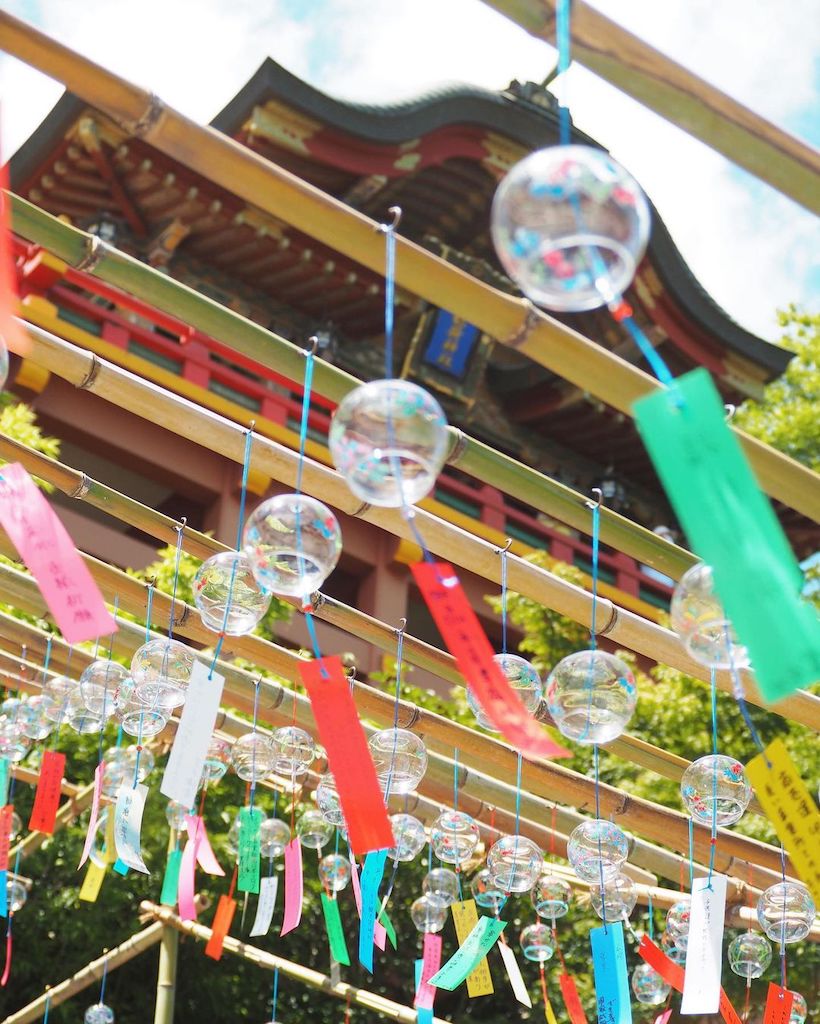
Image credit: @ayashima28
To get to the main shrine, you’d have to climb a few flights of stairs. Alternatively, you can also fork out ¥300 (~USD2.85) to get a quick and sweat-free ride up the elevator.
After you’re done praying at the main hall, follow the walking trail near the terrace – it will lead you to a secluded, slightly steep cobbled path. Climb to the top and you’ll be rewarded with views overlooking Kashima City and the Ariake Sea.
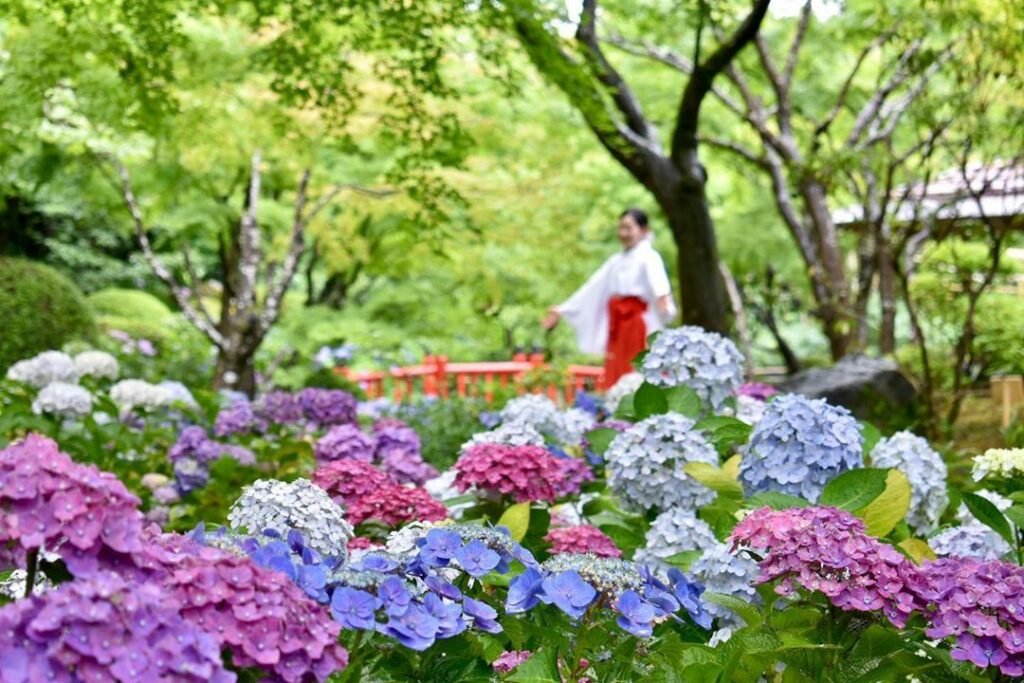
Image credit: @yutokuinari.shrine
The shrine’s Japanese garden is well-known for its vibrant blooms, including peonies in spring and hydrangeas during the rainy season in June.
Opening hours: 24 hours, Daily
Address: Furueda, Kashima, 849-1321, Saga
Telephone: +81 954-62-2151
Website
8. Fun in the sun at Garasu no Sunahama
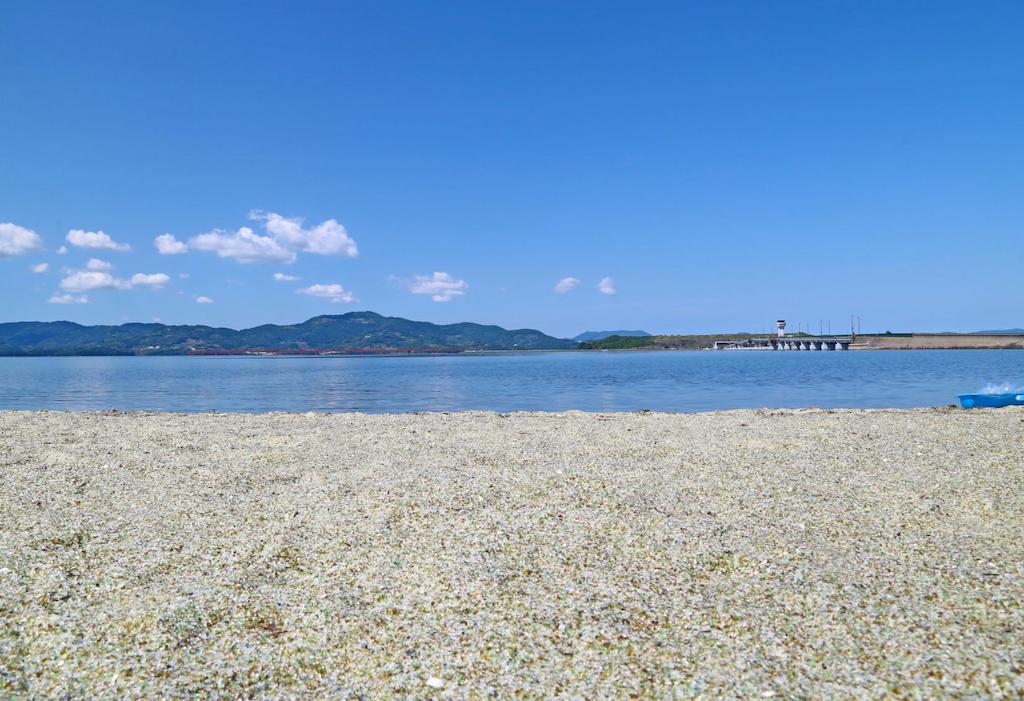
Image credit: Nagasaki Tabinet
Glass on a sandy beach is usually associated with litter along the shore, but that’s fortunately not the case at Garasu no Sunahama (ガラスの砂浜), which literally means “glass sand beach”.
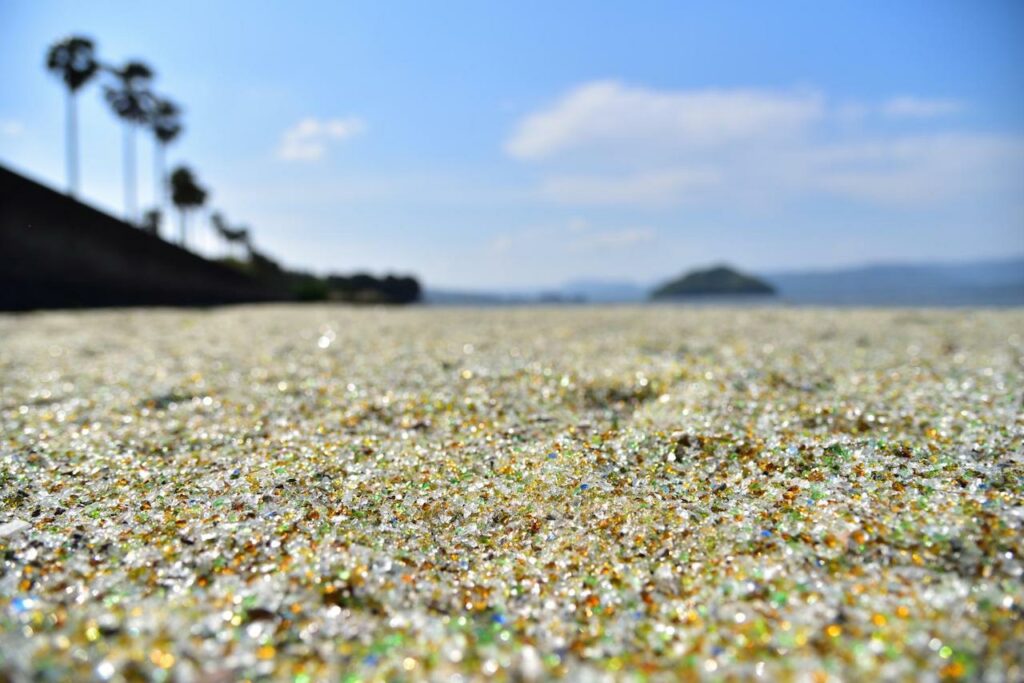
Image credit: Nagasaki Tabinet
Built in 2016 to improve the water quality of Ōmura Bay and to provide an environment where marine creatures, such as clams, can thrive, the beach is filled with glass sand made with recycled glass bottles. Under the sun, you’ll see colourful glass pieces glistening and reflecting light.
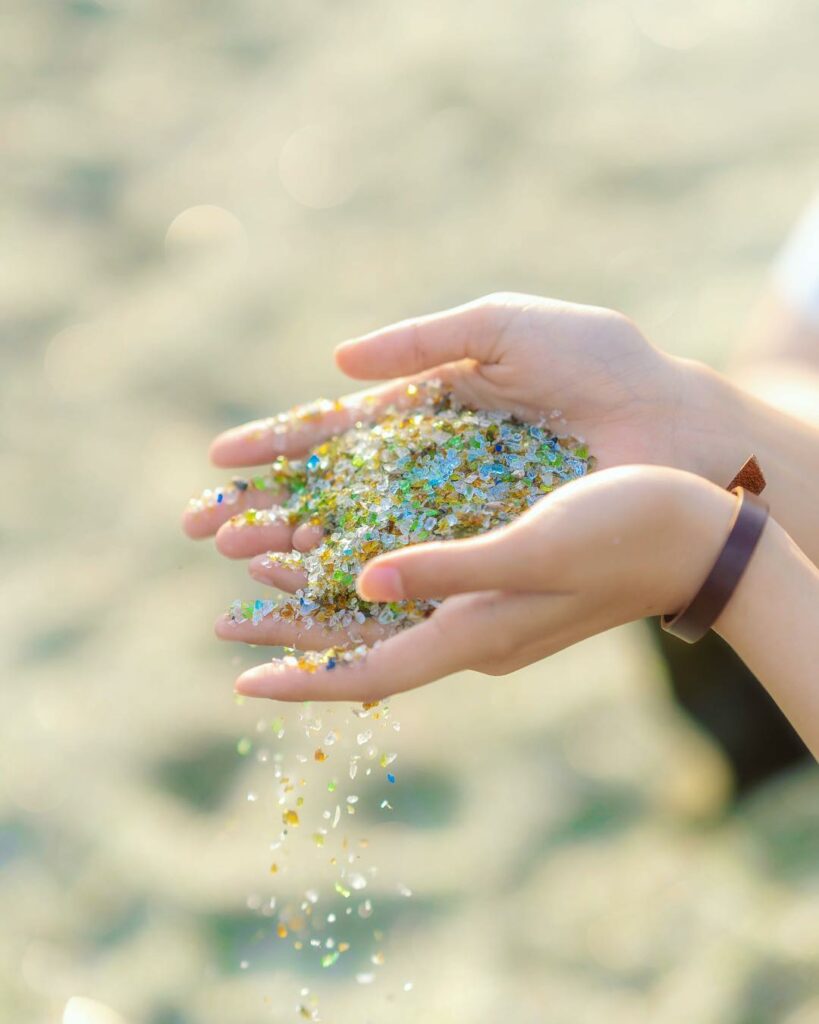
Image credit: @akira._0211
It is safe to touch the glass sand with your bare hands, as the corner of each individual piece has been rounded and dulled. That said, visitors are strongly encouraged to keep their shoes on for their safety, so don’t be tempted to run through the sand barefooted as you may seriously hurt yourself.
Like Yūtoku Inari Shrine, this beach is not exactly in the town of Konagai, but the unique glass sand alone is worth a pit stop.
Opening hours: 24 hours, Daily
Address: Morizonomachi, Ōmura, 856-0815, Nagasaki
9. Sunset views at Ouo Shrine
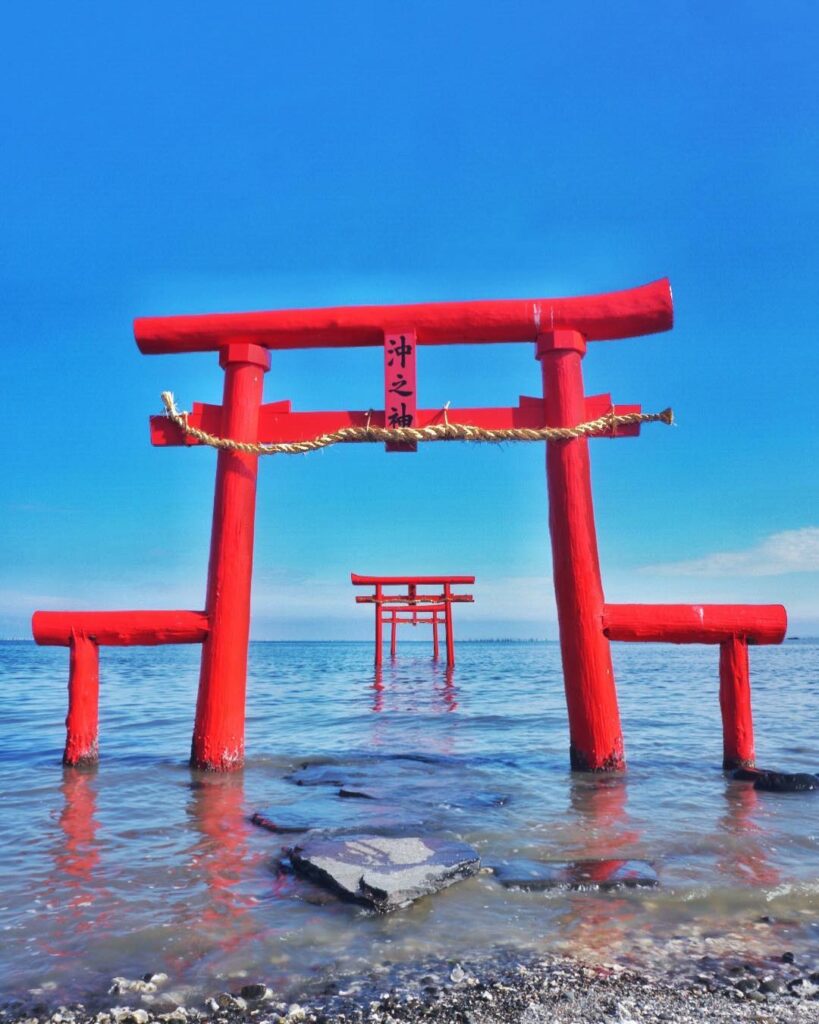
Image credit: @yoshi19860227
Itsukushima is not the only shrine in Japan with floating torii gates. The Kaichū Torii (海中鳥居) of Ouo Shrine offers an equally spectacular view that can rival the celebrated shrine in Hiroshima.
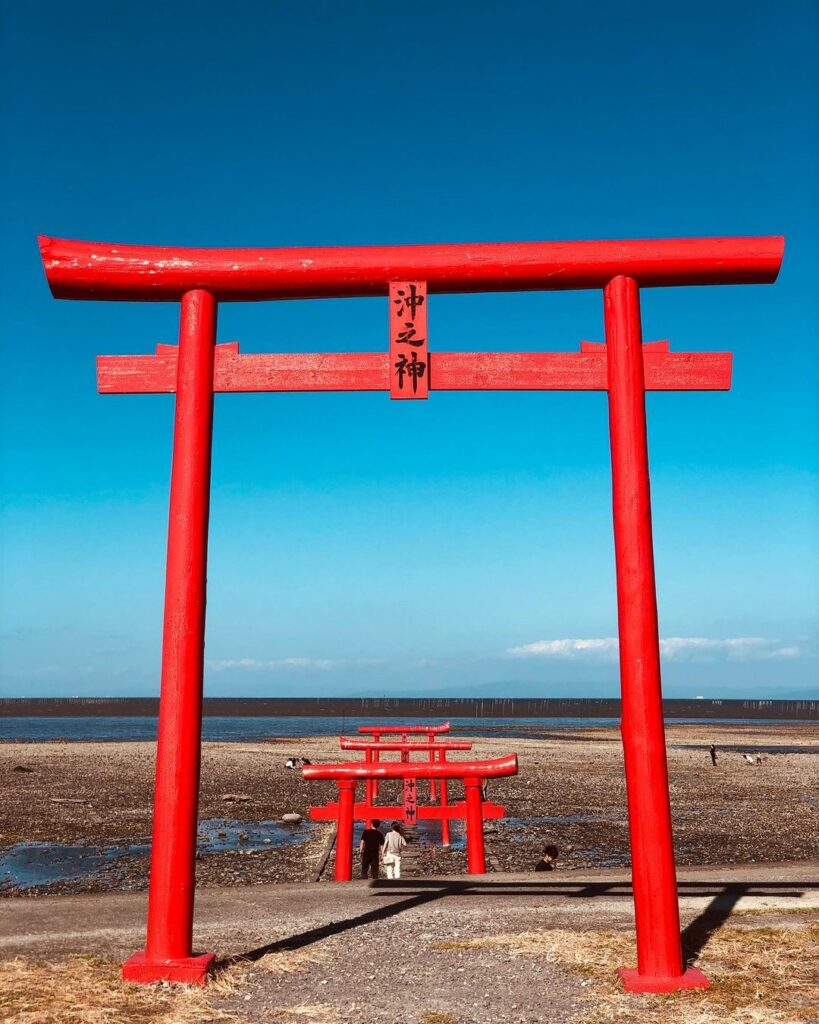
Image credit: @eishiro_ikeda
Just two train stops and a 10-minute walk away from Konagai Station, you’ll find Ariake Sea’s very own trio of floating torii gates.
During low-tide, the waters will recede completely, leaving exposed paths that lead through the torii gates. Between its high and low tide, the difference in water levels can reach up to 6m, with the gates partially or even completely submerged during certain times in the day.
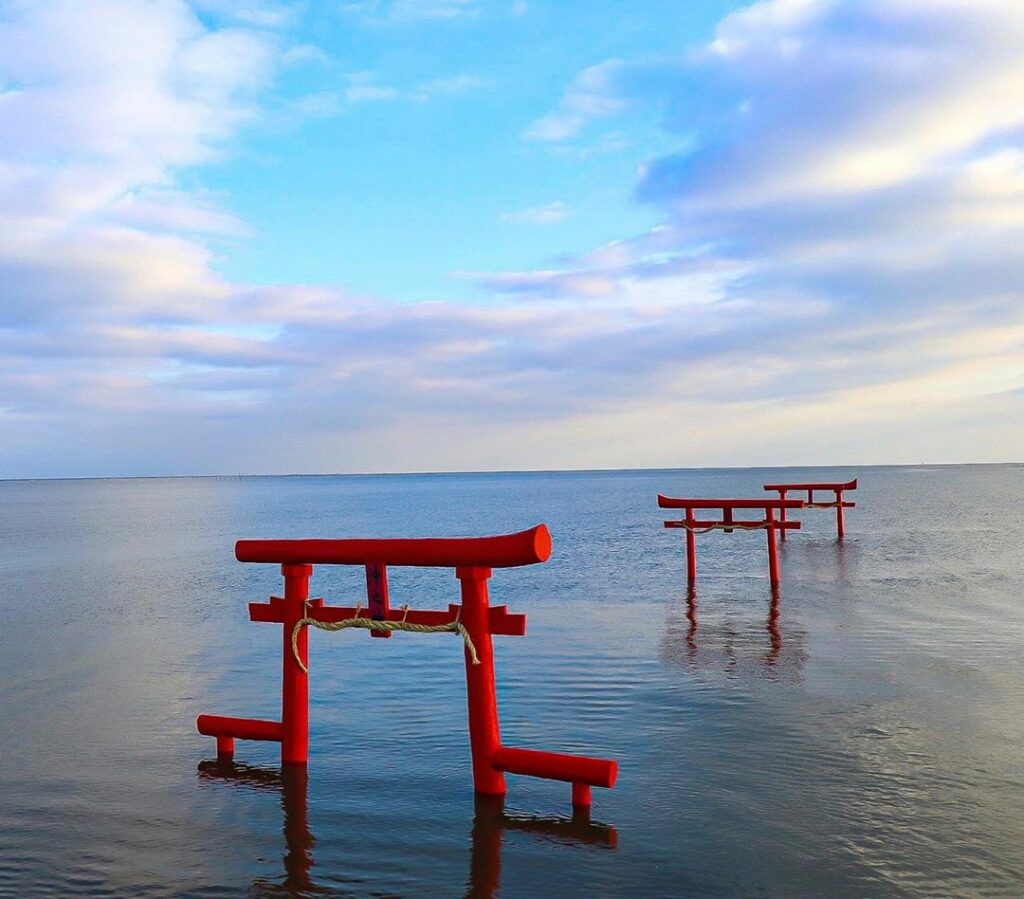
Image credit: @kikuo1959
The best time to visit is in August, when the annual Yukino Lantern Festival is held and over 500 lanterns are distributed on the beach and around the gates.
Opening hours: 24 hours, Daily
Address: 1874-9 Tara, Tara-cho, Fujitsu, 849-1602, Saga
Konagai guide
Travelling in Konagai may require quite a fair bit of research and strategic planning, but you’ll be rewarded immensely with new sights and experiences that no city can offer. Time to incorporate quieter, quaint towns into your itinerary and see what the countryside in Japan has to offer!
For more guides and places to visit in Japan, check out these:
- Autumn leaves viewing spots
- Japanese Zen gardens
- Free Tokyo walking tours
- Kawagoe guide
- Unique Japanese architecture
Cover image adapted from (left to right): @nonbiriyama, @akira._0211, and @aiaki_1
